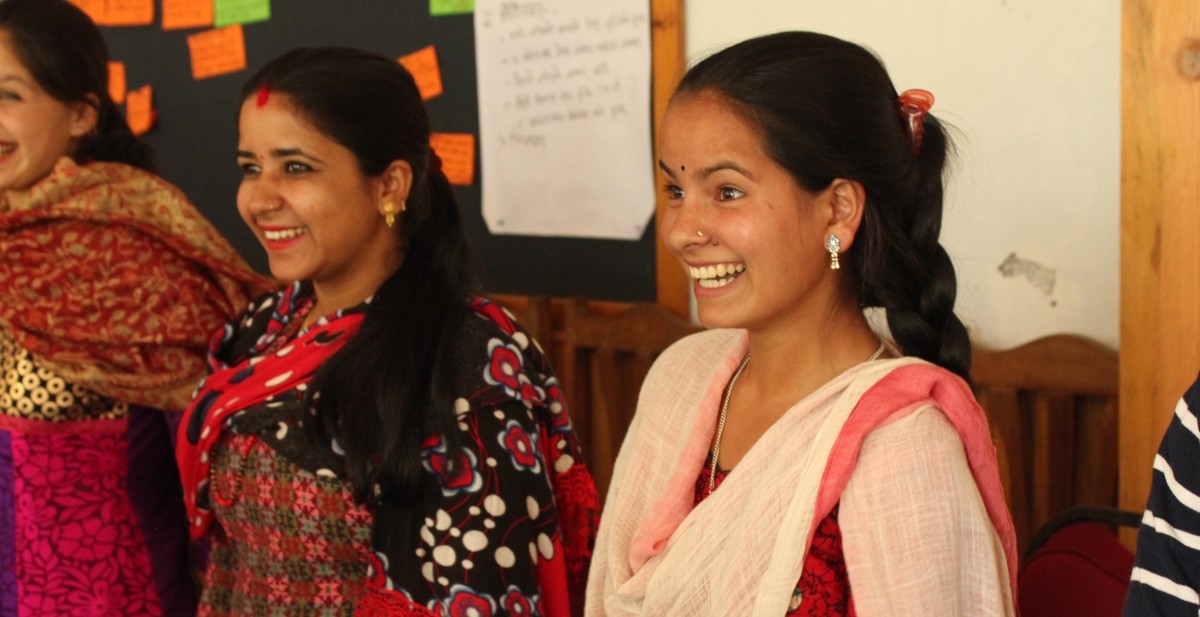Citizenship Amendment Bill: A Harsh Assault on Women

 Gender IT
Gender IT
Legislation regarding Nepali citizenship has been a long-debated topic among political parties of Nepal. The issue, since it affects a wide spectrum of people is very sensitive and requires a thorough discussion and mutual understanding between various concerned groups. However, NCP’s secretariat meeting on Saturday (20th June), disregarding the sensitivity of the matter, took the decision on it. The decision that came on the issue, which was being debated in the parliamentary committee for the last two years, has complete disapproval from Janata Samajwadi Party and women rights activists. The amendment bill, which was first passed from the ruling party NCP’s secretariat consisting of all males, affects women from various ethnic and geographical backgrounds. The bill is a retrogressive step in the fight for equal rights for women in Nepal. It stops a foreign woman who’s married Nepali man to receive citizenship before 7 years of her marriage after she has renounced her previous citizenship. The bill also makes it very difficult for a woman to be able to issue citizenship to her children in her name. It completely denies citizenship to a foreign man, who has married a Nepali woman. The bill also makes it compulsory for trans people, to prove their transition. (Photo: Yogendra Singh) The bill with such discriminatory provisions is unconstitutional. As it goes against the Constitution of Nepal 2015 BS Article 18 Right to equality: (2) There shall be no discrimination in the application of general laws on the grounds of origin, religion, race, caste, tribe, sex, physical conditions, disability, health condition, matrimonial status, economic condition, language or geographical region, or ideology or any other such grounds. And also against international laws, as Nepal is a signatory of the Convention on the Elimination of All Forms of Discrimination against Women (OHCHR, United Nations). The present decision by the government violates the principles of equality of rights and respect for human dignity as mentioned in the Convention. Whereas to hide the mishandling of the pandemic and to prevent any sort of protest against such a controversial bill, must be the major reasons why the government chose to bring it in times of humanitarian crisis. The first major change planned to be done to the Citizenship Act 2063, will prevent foreign women who have married Nepali men to obtain naturalized citizenship for 7 years of marriage after she has renounced her native country’s citizenship. This is a retrograded idea even in comparison to the 2019 B.S. constitution issued by Mahendra, the then king of Nepal. The 2019 B.S. constitution, too allowed a foreign woman who has married a Nepali man to exercise all her rights. Except getting a few political positions like President, Prime Minister, Army Chief, etc. The restriction still exists as the Nepali constitution’s clause no. 289. Apart from a few propagandist fears, the government hasn’t been able to deliver reasons that could possibly justify the withdrawal of the existing rights. So, in a country, where you can’t even buy a SIM card without your citizenship, how can a few ultranationalists (on the basis of baseless fears) expect women to survive without one? Why stop women, who’ve intended to live their whole life in Nepal, from exercising even the basic rights? The government also in a hurry tried to bring about the idea of Permanent Resident Card, in which except for political rights all the rights will be granted to people with marital citizenship by naturalization. But we do need to understand that this idea will require both a structural change and a different constitutional bill in itself. Around 32-34 laws will have to change to make those facilities available to those women. And considering the speed at which Nepali bureaucracy and the government works, it is set to take several years. Until then, are those women supposed to live in Nepal like refugees? The second change in the Citizenship Act 2063 after the amendment, will make it tougher for a woman to issue citizenship to her child in her name. The first point of the amendment says, “A person’s mother should be Nepali. He/She should be born in and be living in Nepal to receive citizenship by descent through his/her mother.” (Photo : Roshan Mainali from Ghumante) The second point makes it compulsory for the mother to clearly define the presence and relation to the child’s father. It also has provisions to punish a mother if her claims are proven wrong. The process gets much simpler for a man. In fact, a father can not even know who the mother of his child is and still be able to provide citizenship to his children. The law tries to tell us that men can, without any contact with women, give birth to babies whereas women can’t. This is particularly challenging for single mothers and mothers who don’t want the father involved, unmarried mothers, and so on. The bill also has no provisions at all for the foreign men who’ve married to Nepali women and wish to stay in Nepal. This idea of the bill in a way supports the rigid, patriarchal mindset of Nepali society, in which girls are meant to leave home after their marriage. The other issue that it completely disregards is with the Trans people. They need to prove their transition in order to get citizenship, which is being seen as an insult for the Trans community. Women’s rights in today’s age shouldn’t even become a matter of debate. Our leaders and governments should without any hesitation provide equal rights to all genders. This unconstitutional citizenship amendment bill is a serious threat to women of all ethnic and geographical backgrounds and requires all of our attention. Article Highlights:
Nepal's New Citizenship Amendment bill stops a foreign woman who’s married Nepali man to receive citizenship before 7 years of her marriage after she has renounced her previous citizenship. The bill also makes it very difficult for a woman to be able to issue citizenship to her children in her name.
.jpg)
Sign Up to write your own Article!
.jpg)






